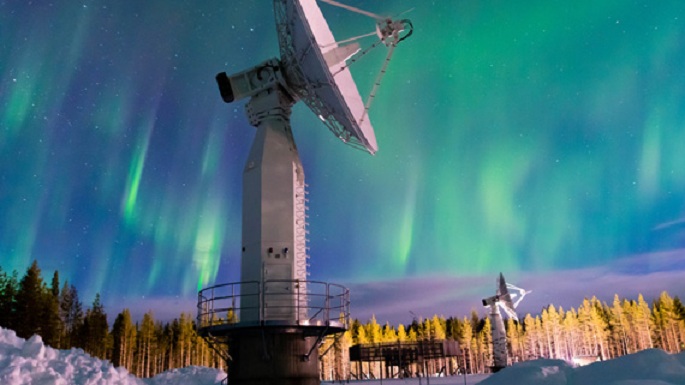Space activities support efforts on the ground: FMI
Published : 19 Apr 2019, 20:55
Updated : 20 Apr 2019, 00:23
Satellites are a superior device to observe a wide range of environmental conditions and changes, according to the Finnish Meteorological Service (FMI).
Satellite observations provide information on air pollution, amount of carbon dioxide, or the scope of the Arctic sea ice. Space technology helps us better understand the conditions on Earth.
"Satellites provide information on changes in the northern areas. The Arctic Space Centre of the Finnish Meteorological Institute in Sodankylä receives, archives and stores satellite data, which is further refined into products and services," said Jouni Pulliainen, Space and Earth Observation Centre Director .
The Finnish Meteorological Institute produces and disseminates information on environmental and climate changes in the northern regions among the European Organisation for the Exploitation of Meteorological Satellites EUMETSAT, European Space Agency (ESA), European Union programmes, and research organisations and companies in different countries.
Observation data can be used to develop environmental services, such as ice and flood maps, or to verify policy measures, such as the implementation of climate objectives as defined in the Paris Agreement.
According to Pulliainen,Changes in space weather can cause interference with radio or satellite operations and positioning connections, increase air passengers' radiation exposure during transpolar flights, or cause problems with electricity transmission systems. The Finnish Meteorological Institute follows space weather 24 hours a day, every day of the year, and produces information on disruptions for the benefit of air traffic and societal safety.
The long-term goal of space weather research is to develop the ability to predict space weather and its most extreme phenomena in particular, in a similar way to terrestrial weather forecasts
Metering devices developed by the Finnish Meteorological Institute are utilised in the study of planets. Instruments developed by the Finnish Meteorological Institute are currently measuring moisture and air pressure on the surface of Mars. Measuring devices are also developed for studying other planets, such as Jupiter,said Pulliainen.
Cooperation with European Space Agency is also crucial.According to Pulliainen, Close cooperation with the European Space Agency ESA is essential for the development of the Finnish space sector. The core functions of European research take place within the framework of ESA. As a result, Finland's participation in large-scale EU projects in the space sector is not possible without the foundations created by ESA.


